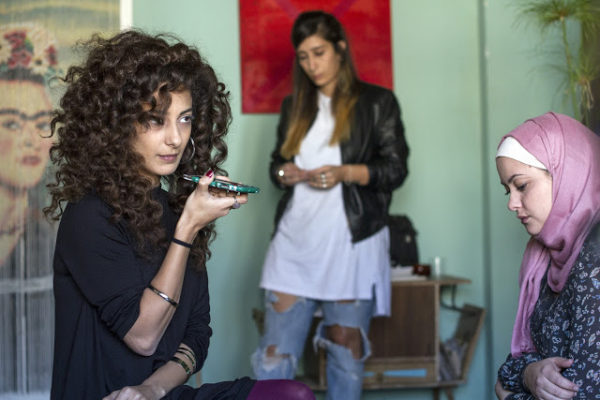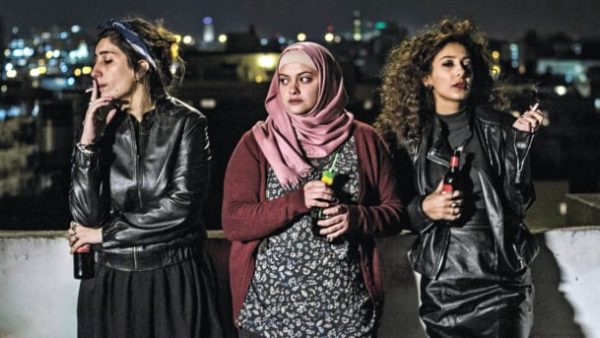Maysaloun Hamoud’s debut feature film, In Between, examines the Arab minority in Israel through the eyes of three young Israeli Arab women living in the world’s first all-Jewish city, Tel Aviv.

It opens in Vancouver on February 9, in Toronto on February 16 and in Ottawa on April 6.
Laila (Mouna Hawa), Salma (Sana Jammelieh) and Nour (Shaden Kanboura) are roommates. Laila, a Muslim lawyer, is feisty and secular. Salma, a Christian who’s thoroughly modern, studied music but now works in a restaurant kitchen. Nour, a pious Muslim engaged to be married, is studying computer science at a local university.
All three are from insular, tight-knit Arab communities resistant to change, but they live in a cosmopolitan Jewish city where everything is in flux. Laila and Salma, in particular, are caught between these two solitudes.
Hamoud’s finely-crafted movie, which unfolds in Arabic and Hebrew, highlights the tensions between tradition and modernity and submissiveness and freedom.
The first and second scenes encapsulate these contrasts.
As an older woman removes hair from the arm of a daughter or a granddaughter, she dispenses practical advice on how a dutiful wife should behave. She should not raise her voice. She should cook good food. She should use perfume. And in bed, she should comply with her husband’s desires.

This placid scene is followed by one set in a loud disco, where Laila and Salma are enjoying themselves after a day’s work. Within the context of their conservative societies, Laila and Salma are non-conformists. They smoke, they drink and they take drugs. Nour, however, is a total conformist. She wears a hijab, appears demure and adheres to traditional Arab norms of feminine behavior.
Despite her iconoclastic outlook, Laila is like a fish out of water in Tel Aviv. When her colleague, a pleasant Jewish man, asks her out on a dinner date, she sardonically declines, saying his mother expects him to bring home a “kosher” daughter-in-law. Laila feels far more comfortable in the company of Ziad (Mahmoud Shalaby), a sophisticated Arab filmmaker who’s studied and worked in New York City.
Salma is also regarded as an outsider. When her boss orders her to stop speaking Arabic, she impulsively quits. But when she applies for a job as a bartender, disclosing she’s a Palestinian, the reception she receives is positive. “Cool,” the bar owner says.
Nour, sure of her identity as a traditional Arab woman, has no such problems. But when her fiancé, Wissam (Henry Andrawes), an old-fashioned kind of a guy, applies undue pressure on her, she silently resents his coercive tactics. He wants her to be a stay-at-home housewife, leave Tel Aviv and marry sooner than they had planned. Much to her bitter disappointment, she learns that Wissam is not as virtuous as he self-righteously presents himself to be.

Laila, too, grows disillusioned when she discovers that Ziad, a supposed liberal, is really a traditionalist at heart. As for Salma, she angers and disappoints her parents to no end when they learn that she and her new friend, Dunya (Ahlam Canaan), a physician in training, are lesbians. Having introduced Salma to a procession of suitable men, they had hoped to marry her off as soon as possible.
In Between gives viewers a revealing glimpse of three women making the transition to modernity in a Jewish society that doesn’t fully embrace or accept them. A stellar cast enhances this film, which takes nothing at face value.
